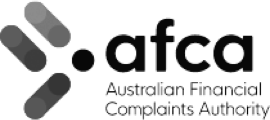The Coronavirus (COVID-19) epidemic is taking its toll on Australian consumers and businesses. As of 30 March 2020, 4163 Australians were infected. The government has started offering relief to Australian businesses in need. The total economic relief package is worth $189 billion. Nearly half of that comes in the form of allowances by the Australian Tax Office (ATO). The ATO is taking unprecedented steps to minimise hardship for small businesses, but you need to take initiative to get the relief. The tax authority is spending $90 billion to help businesses survive the crisis.
You should familiarise yourself with the tax relief options available. Here are some provisions that could help your business.
- Option to defer payments
Taxes are a major burden on Australian businesses during this pandemic. The ATO understands the pressure they are facing, so it has given affected companies the option to defer income tax payments, excise payments and various instalments for up to six months.
Taxes are a major burden on Australian businesses during this pandemic. The ATO understands the pressure they are facing, so it has given affected companies the option to defer income tax payments, excise payments and various instalments for up to six months. - Get GST credits every month
The ATO allows businesses to get GST credits every month. However, to access these credits, your business needs to opt into monthly reporting and make monthly payments.
You are required to report and pay monthly if your business has over $20 million in GST turnover. Otherwise, monthly reporting is optional.
If you choose the monthly reporting option, then you will need to stick with it for 12 months before returning to a quarterly reporting option. You must also apply for monthly reporting at the beginning of the quarter. - Switch to monthly PAYG instalments
You can also vary the PAYG instalments when launching your activity statement. To take advantage of this benefit, you will need to file a revised statement before the next instalment is due. You must also submit the revised statement before lodging your annual tax return.
Revising your PAYG instalments can be a good idea if you need to reduce interest and penalties. The ATO will not impose any charges or penalties for instalments made during the 2019-20 fiscal year. You can also correct mistakes by filing revised activity statements or varying another instalment made at a later date. - Possible remittance of penalties and interest
The ATO recognises the challenges some businesses face in keeping up with their taxes. Businesses may have some of their interest and penalties remitted.
You need to keep accurate records of your revenue and taxes owed. You will only be able to remit interest and penalties that you incurred after January 23, 2020. The remittances are not guaranteed and are granted at the ATO's discretion. - Lower interest on payment plans
The ATO will not waive penalties or interest for every business. You should still seek this relief if you think it will be beneficial. However, if your remittance request is denied, then you have another option.
The ATO is also offering low-interest PAYG options to businesses in need. The requirements for this relief are more lenient and flexible. You might save a considerable amount of money. The interest rates are not published on the ATO website, so you will need to contact them to negotiate the details. - Super guarantee charges
Some businesses have sought relief from the ATO for super guarantees. They worry that cash flow issues could make it more difficult to meet these obligations.
Unfortunately, the ATO is unable to provide relief. Super guarantees are required for every employer. The law prohibits the ATO from adjusting due dates on contributions or waiving the charge. - Increase to instant asset write-offs
The ATO has also increased the write-off for instant assets. There are two ways the ATO has made write-offs more generous for businesses:- The threshold for write-offs has increased from $30,000-$150,000.
- These write-offs are typically reserved for businesses with an annual turnover under $50 million.
However, the COVID-19 exceptions allow write-offs for businesses with an aggravated annual turnover of up to $500 million. These write-offs can be used for both new and used assets. The assets can be written off if they are purchased second hand. However, they must be purchased or installed between March 12, 2020, and June 30, 2020, to qualify for the enhanced write-off.
Working capital lenders like Banjo Loans may be able to assist you with funding for these types of purchases.
- Accelerated depreciation
The ATO is also offering more generous depreciation deductions during the COVID-19 crisis. Businesses can accelerate depreciation deductions considerably. You have the option of deducting up to 50% of the cost of illegible assets on installation. This incentive is available for 15 months. It is available to businesses with aggregated turnover under $500 million. - Cash flow boost for employers
The ATO is also offering a very generous cash flow boost to businesses with employees and an annual turnover under $50 million. Both for-profit and non-profit employers are eligible for this cash flow boost, although the allowances differ. The government is paying up to $100,000 to eligible businesses and the minimum payment is $20,000. The minimum payment for eligible non-profit businesses is $10,000 and the maximum payment is $50,000.
In summary If you feel you can benefit from any of these initiatives, please investigate as quickly as you can. Talk to your accountant if you are unsure or for assistance.


